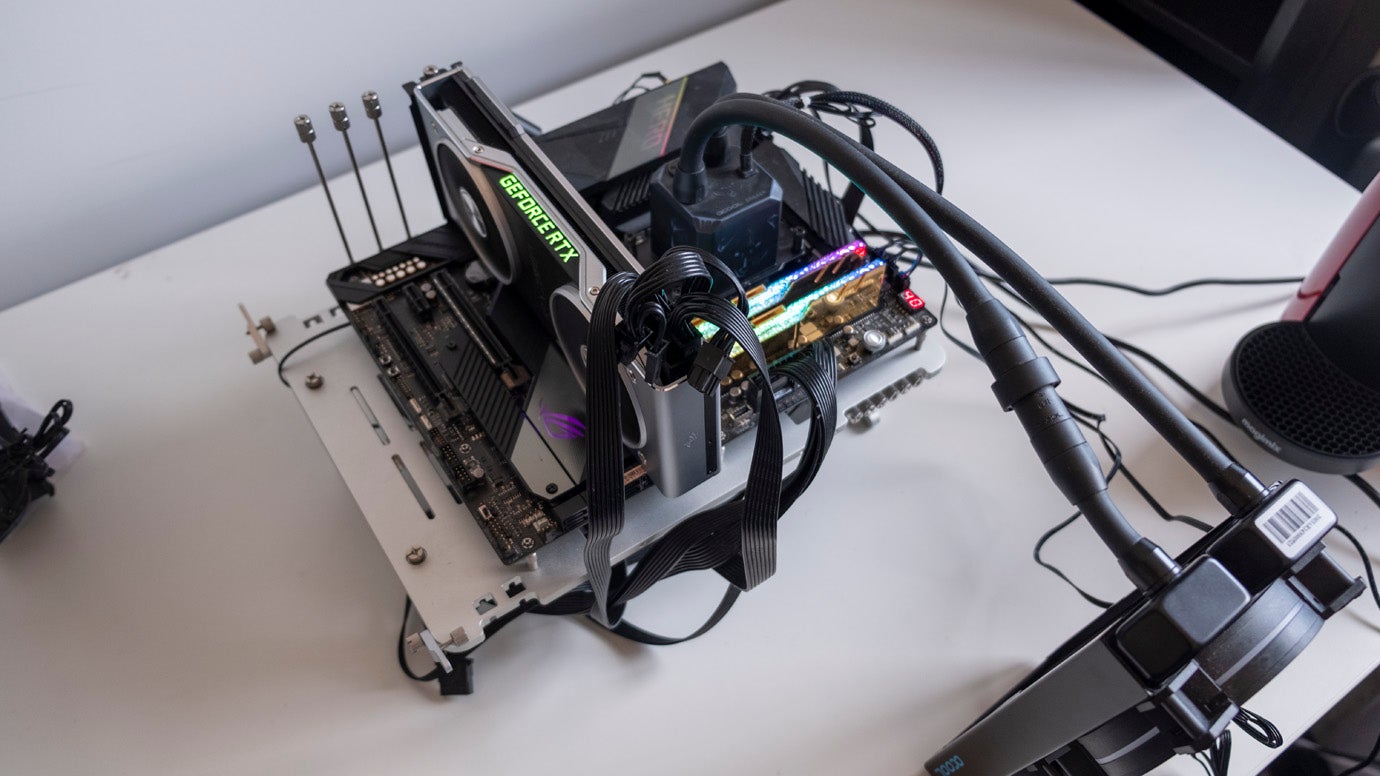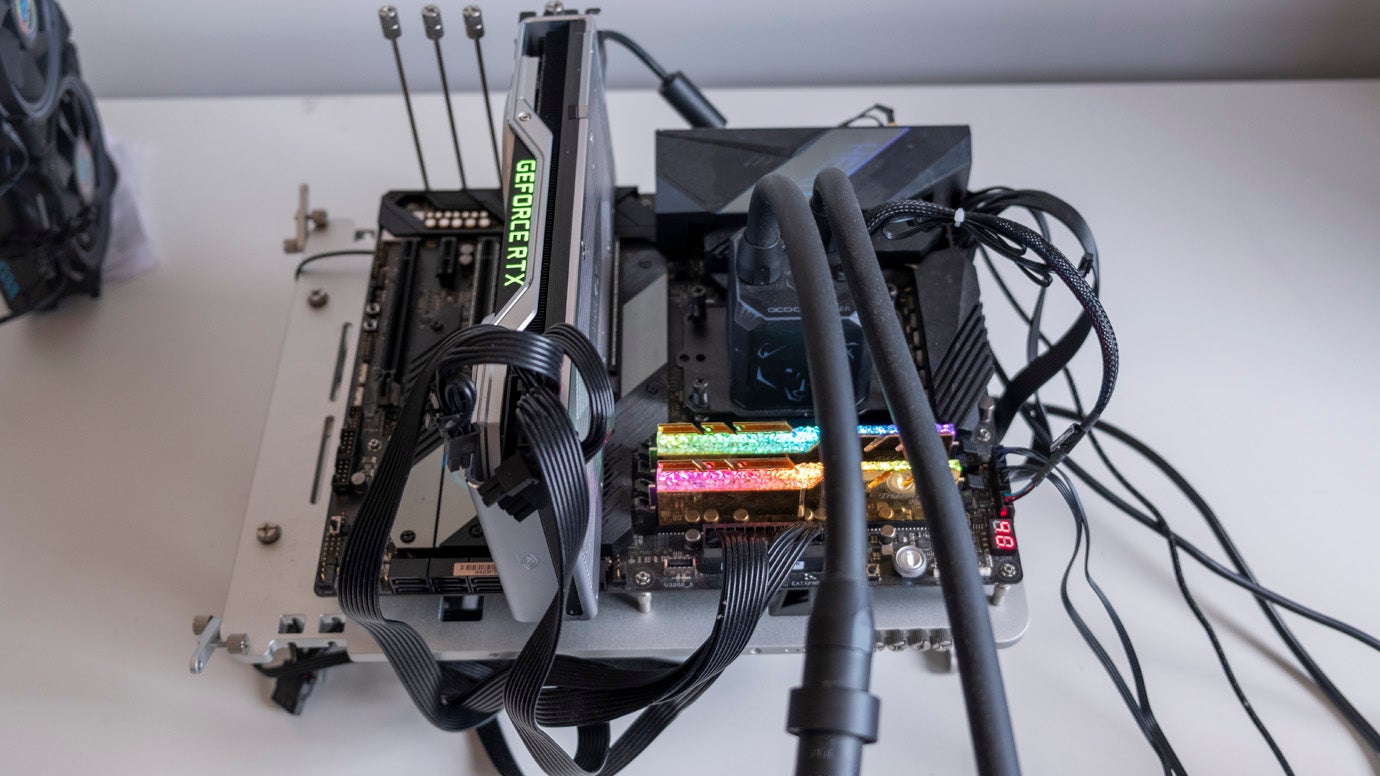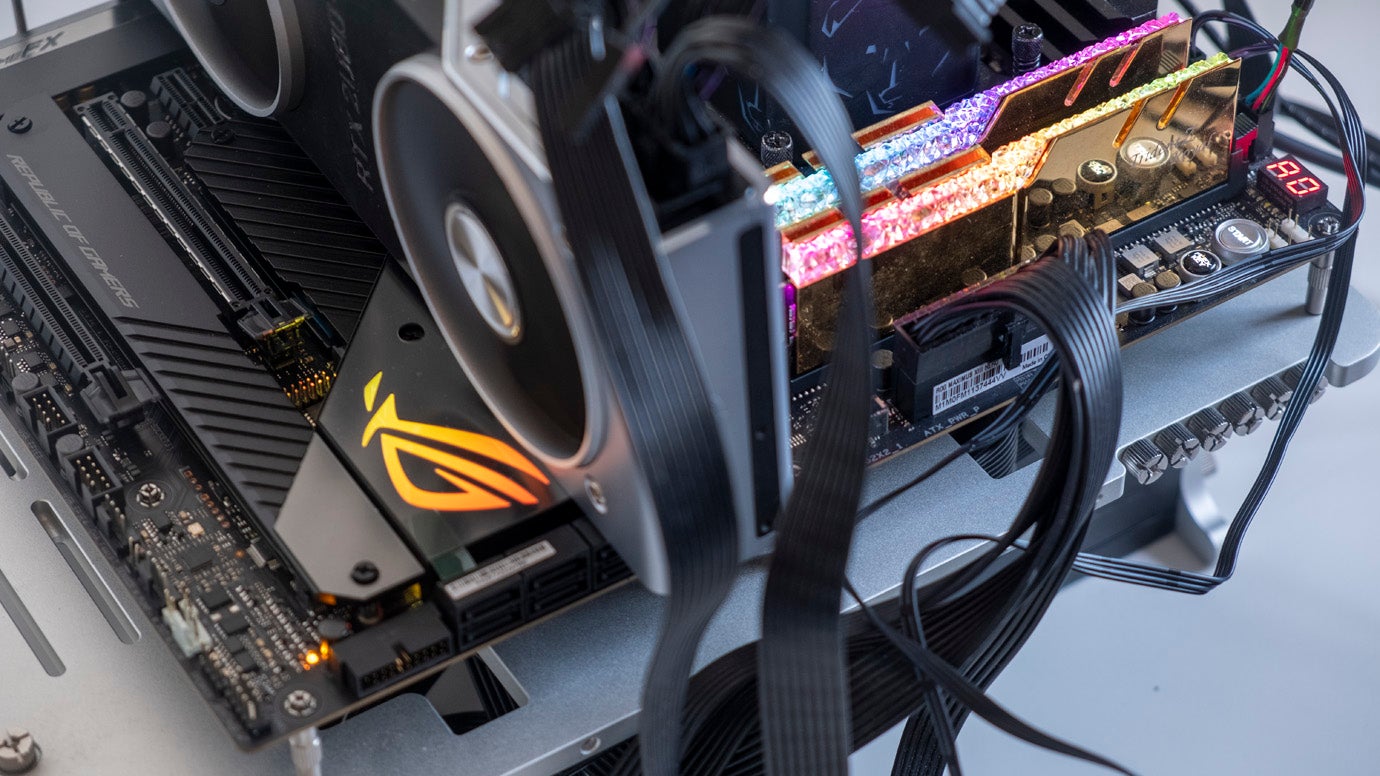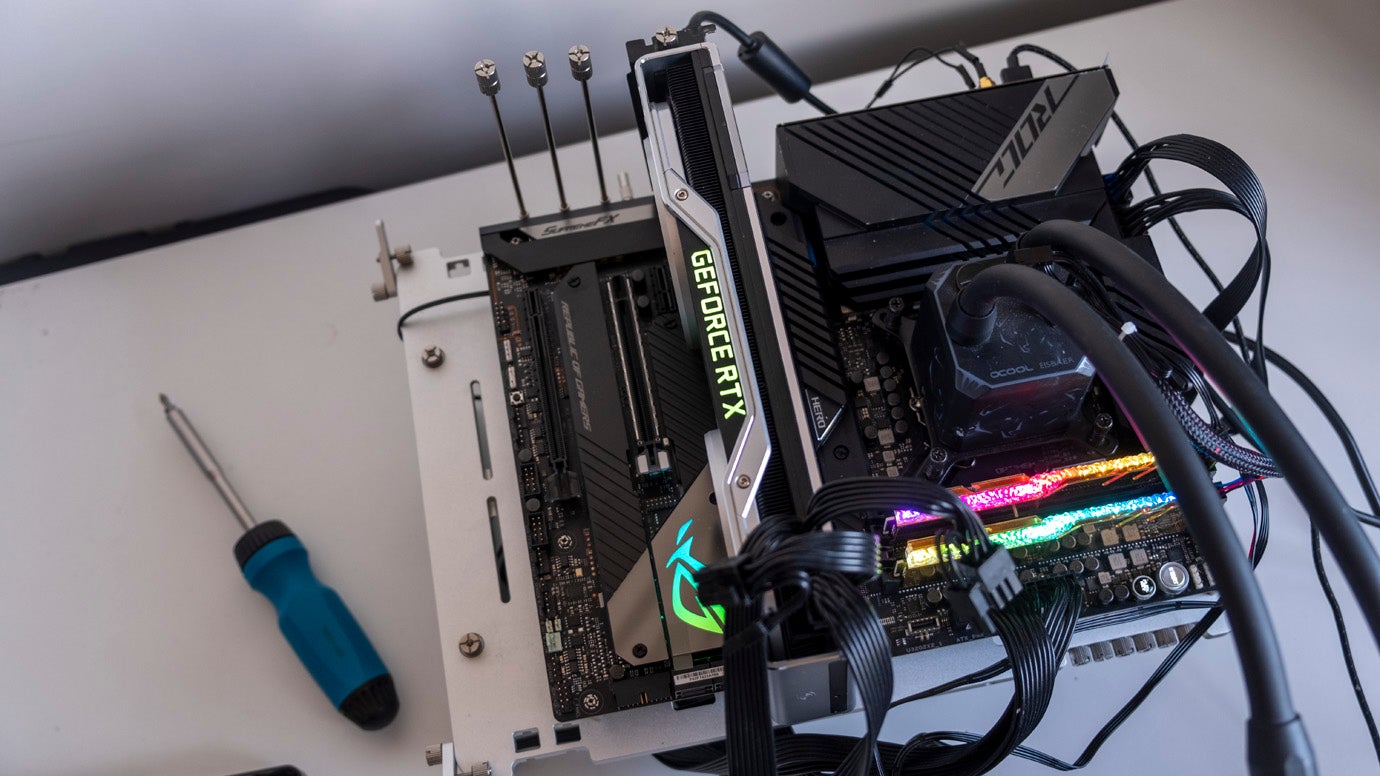So what is an APU anyway? This stands for Accelerated Processing Unit, and basically means you get both a CPU and a GPU in a single package. The advantage of this is that you can run your computer and even play games without a dedicated graphics card, a useful capability when graphics cards are in short supply and prices have skyrocketed. The CPU here is a Zen 3 design, but more in line with the Ryzen 5000 line of laptop processors, codenamed Renoir. That means two key Ryzen 5000 desktop CPU features, PCIe 4.0 support and double-size L3 cache (what AMD calls Game Cache), aren’t included. However, this isn’t too surprising given that AMD needed to find space for eight Zen 3 CPU cores and an 8CU RX Vega graphics engine within the same physical constraints as AMD’s regular Ryzen 5000 CPUs. As you might expect, the Ryzen 7 5700G uses the same AM4 socket design as past Ryzen processors so it works on a wide range of motherboards made over the last half-decade; just make sure the one you choose comes with HDMI and/or DisplayPort outputs so you can actually connect your monitor. If you don’t have another AM4 CPU to hand, you may also want to choose a model with a ‘USB BIOS Flashback’ feature, which allows you to update the BIOS via a USB drive without a CPU installed; AMD’s support page has more information. The APU comes with a Wraith Stealth CPU air cooler in the box, which keeps the 65W chip cool at a reasonable noise level. The 5700G is unlocked, so you can try your hand at overclocking it if you’re inclined, but AMD’s automatic boost algorithms are pretty good at delivering most of the CPU’s potential performance without any messing around in the BIOS. Our testing will use our standard early-2021 CPU test bed, which includes a 240mm Eisbauer Aurora liquid cooler, a 1TB Samsung 970 Evo SSD provided by Box, a 1000W Corsair PSU provided by Infinite Computing, an Nvidia GeForce RTX 2080 Ti graphics card and 16GB of DDR4-3200 CL16 memory. We used our regular Asus Crosshair Hero 8 motherboard for testing the 5700G with the RTX 2080 Ti, and switched to an MSI B550 Gaming Carbon WiFi motherboard for testing the integrated graphics (as the Crosshair doesn’t feature an HDMI output). Meanwhile, our Intel testing was performed on an Asus Z590 Maximus Hero motherboard. Let’s move onto the content creation testing to get an idea of how these eight Zen 3 cores perform. We’re expecting performance between that of Ryzen 3700X and ‘full-fat’ Ryzen 5800X, and ideally more towards the latter than the former. In Cinebench R20, a synthetic test that aims to replicate a realistic workload from 3D rendering package Cinema4D, the 5700G is impressive. It’s just a hair behind the Ryzen 5600X when it comes to single-core performance, with less than 30 points in it (four percent), and noticeably faster than Ryzen 3000 processors, even the later XT designs. In multi-core terms, the 5700G is even more competitive, outdoing the six-core 5600X by nearly 900 points (25 percent faster) but falling behind the 5800X by around 650 points (10 percent slower). That suggests we’ll see strong results in the video transcode test, and indeed the 5700G is 22 percent faster than the 5600X. The margins halve in the HEVC test to 11 percent, but it’s still a good lead for the 5700G over the similarly-priced 5600X. Both CPUs also draw the same amount of power with a GPU connected, although obviously the 5700G has the benefit of being able to run without a GPU to cut total system power slightly. Compared to the 3700X, AMD’s popular last-gen eight-core processor, the 5700G is a good 10 percent faster. Not a massive gap, but still a reasonable result for an APU of this class. It’s promising stuff so far, so how does the 5700G perform in games when paired with an RTX 2080 Ti? Let’s take a look in eight of our favourite titles - plus a quick look at how RAM speeds affect performance and how the 5700G runs as a full-blooded APU. AMD Ryzen 7 5700G analysis
Introduction, hardware breakdown, test system [This Page] Gaming benchmarks: Hitman 3, Total War Three Kingdoms Gaming benchmarks: CS:GO, Rainbow Six Siege, Black Ops Cold War Gaming benchmarks: Cyberpunk 2077, Far Cry 5, Crysis 3 Gaming benchmarks: Memory bandwidth analysis Gaming benchmarks: Integrated graphics AMD Ryzen 7 5700G: the Digital Foundry verdict



